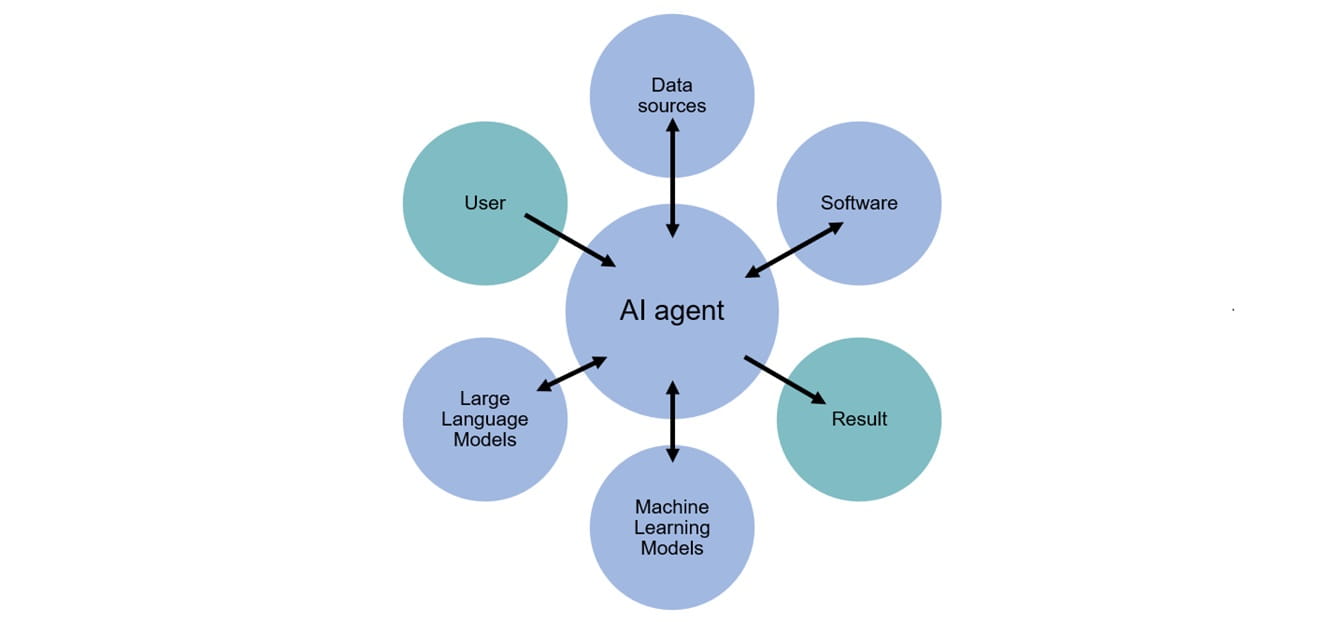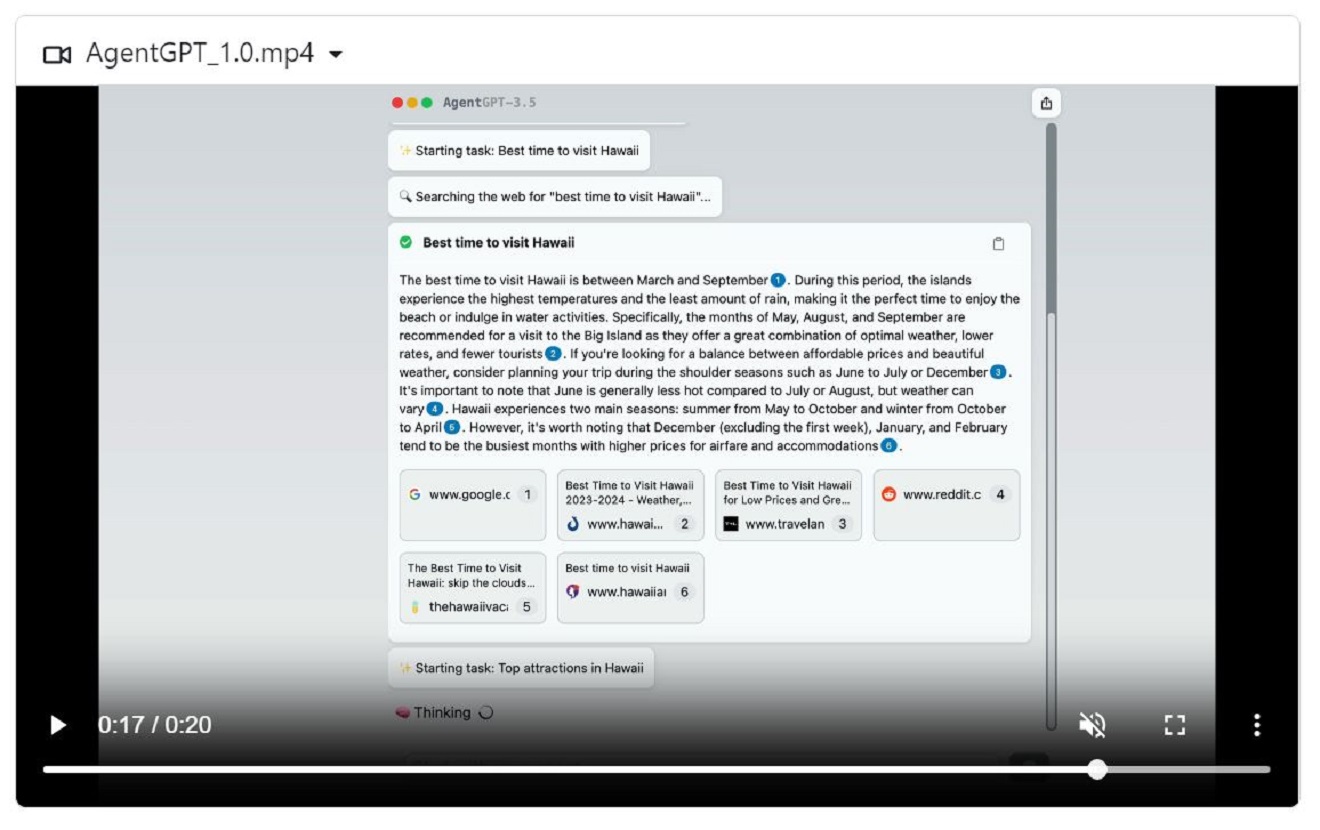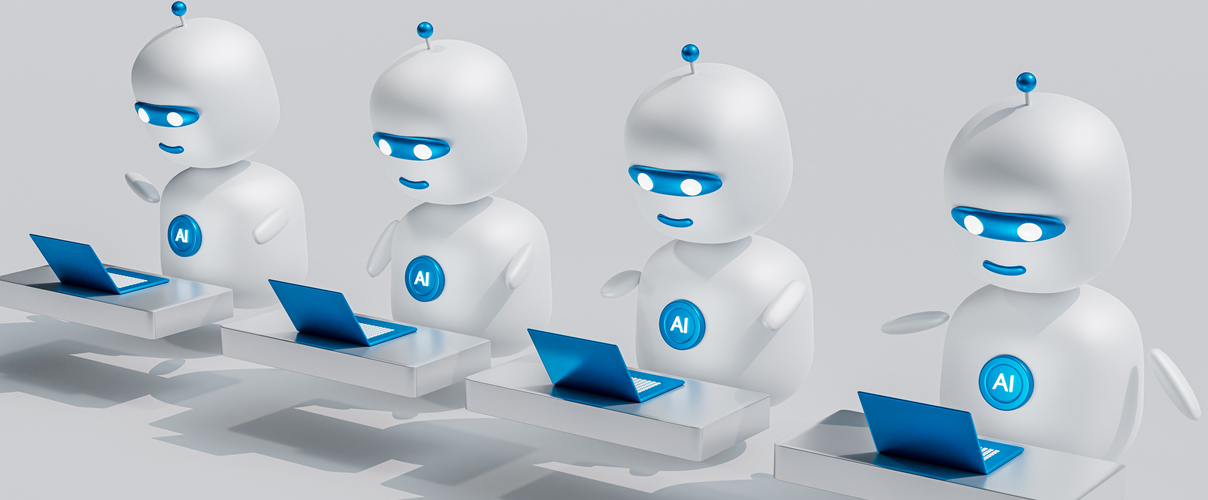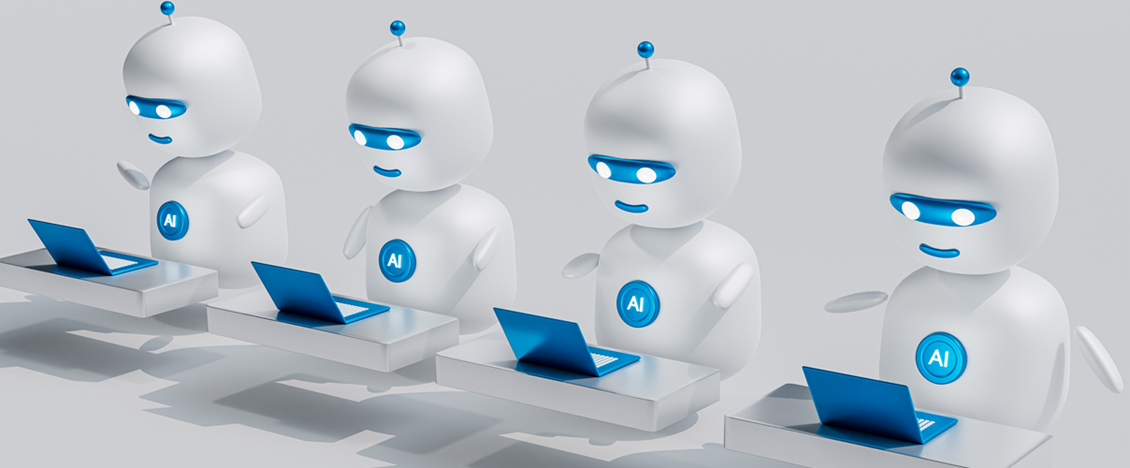What are AI agents and how do they work? Use of AI agents in education, research and everyday life
Dr. Maria Comos-Birmanns
Artificial intelligence (AI) has made rapid progress in recent years and is increasingly becoming a part of our daily lives (cf. Walter, Y., 2023). One of the latest innovations in this area is the emergence of so-called AI agents. These are intelligent programmes that are even better at carrying out tasks, making decisions and interacting with people. The following blog post gives a basic definition, explains how they work, shows areas of application, and provides some ethical considerations.
What are AI agents?
AI agents, or intelligent agents, are software or hardware entities that autonomously perform tasks, process data, make decisions, and interact with their environment or other agents. These agents are based on advanced algorithms and machine learning that enable them to adapt to changing conditions and constantly learn. This makes them superior to simple large-language models such as GPT (which is behind ChatGPT), as they complete tasks in a targeted manner and can set themselves follow-up tasks.
How do AI agents work?
AI agents build on top of existing algorithms, in particular large language models (LLMs). Like LLMs, AI agents use machine learning (ML) algorithms to derive patterns, rules or models from the collected data. Based on this, they can make decisions or perform tasks. They are also able to interact with their environment, whether physically in the form of robots or virtually in the form of computer programmes, and thus adapt to changing conditions and continuously improve.
However, AI agents can do much more: their exact mode of operation depends on the specific application and the underlying algorithms. Their ability to make decisions plays a vital role in this process. This is because they can use various tools such as specific programmes, databases, etc.
In simple terms, this can be explained as follows: You are given the task of building a house, with your bare hands this is difficult and unsatisfactory. However, AI agents are intelligent enough to learn how to use tools to build a house. If you give GPT, an LLM, the task of calculating something complex, the result will not be satisfactory because it cannot complete precise computations. However, GPT is intelligent enough to use a calculator as a tool if it is trained accordingly. GPT can thus become an AI agent. Learning to choose the right tools and the ability to use them is what makes an AI agent.
For example, chatbots use natural language processing models (e.g. GPT) to conduct human-like conversations. AI agents can additionally use neural networks to analyse images and recognise objects (see Figure 1). However, training and quality of data have an immense impact on the effectiveness of AI agents.

Where can AI agents be used?
AI agents have the potential to revolutionise education. They can create personalised learning paths for pupils and students to meet their individual needs. Lecturers can use AI agents to optimise teaching material and conduct automated examinations. This technology can also help with the creation and analysis thereof (cf. De Witt, C., Rampelt, F., & Pinkwart, N., 2020).
AI agents can even make great progress in scientific research. They can perform complex calculations, analyse data, and generate hypotheses. Researchers can use AI agents to search through large data sets and identify patterns or trends. This speeds up the research process considerably. Agents can also make combing through previous research easier.
In healthcare, AI agents can play an important role in the diagnosis of diseases and the development of treatment plans. They can analyse medical data to help doctors make decisions and improve the accuracy of diagnoses (cf. Davenport T. & Kalakota R., 2019).
Autonomous vehicles are a prominent example of AI agents in the real world. These vehicles use sensors and algorithms to navigate safely through traffic and prevent accidents (cf. Fugen, Y. & al., 2020).
How can AI agents be used?
There are a large number of ready-made AI agents that can be tested with varying degrees of installation effort. One example is AgentGPT from the company reworkd, which can be accessed via a browser. It can currently be used via a waiting list, but the website provides an initial insight into what the application looks like even without logging in. The following video shows the actual use of TravelGPT, which plans trips, creates multiple tasks, and utilises several data sources:

Conclusion - what is the potential of AI agents?
AI agents have the potential to transform many aspects of our lives. Processes are accelerated and everyday work is supported. For students, they offer the opportunity to specialise in the field of AI and work on innovative projects. Lecturers can use AI agents to optimise the teaching process and create more effective educational experiences. The future of AI agents is promising, but ethical issues (cf. Willi Kägi, I. & Walter Y., 2023), the traceability of decisions, and data protection must not be ignored.
Sources
Davenport, T. & Kalakota, R. (2019). The potential for artificial intelligence in healthcare: Future Healthc J. 2019 Jun;6(2):94-98. doi: 10.7861/futurehosp.6-2-94. PMID: 31363513; PMCID: PMC6616181.
Russell, S. J., & Norvig, P. (2021). Artificial Intelligence: A Modern Approach: Pearson.
VAI LABS (2023). Navigating the AI Agent Landscape: Insights into Advancements and Opportunities.
Walter, Y. (2023). Über KI-Superintelligenz (1/2). Kalaidos Blog.





